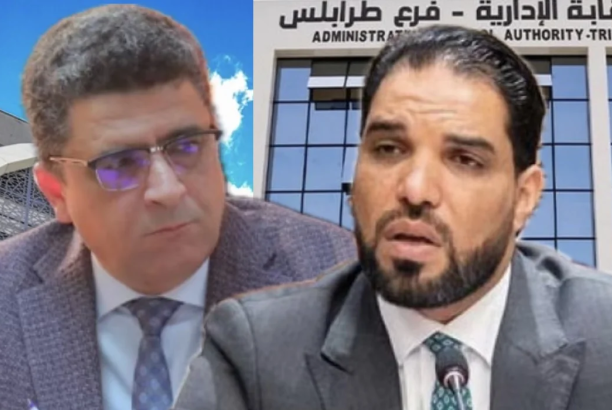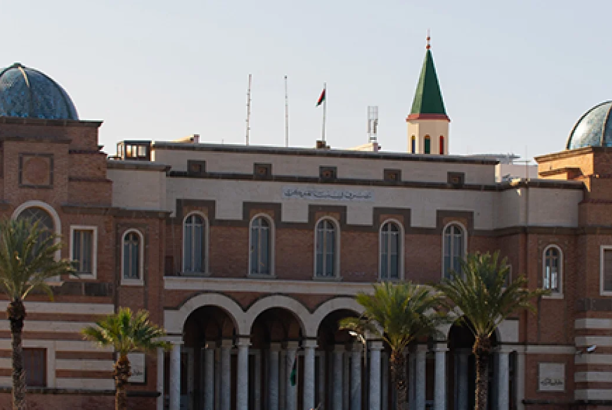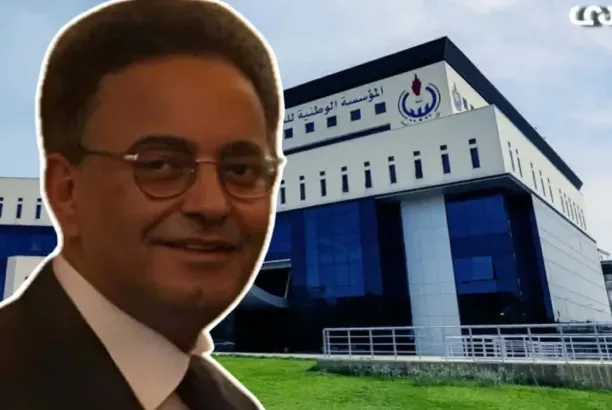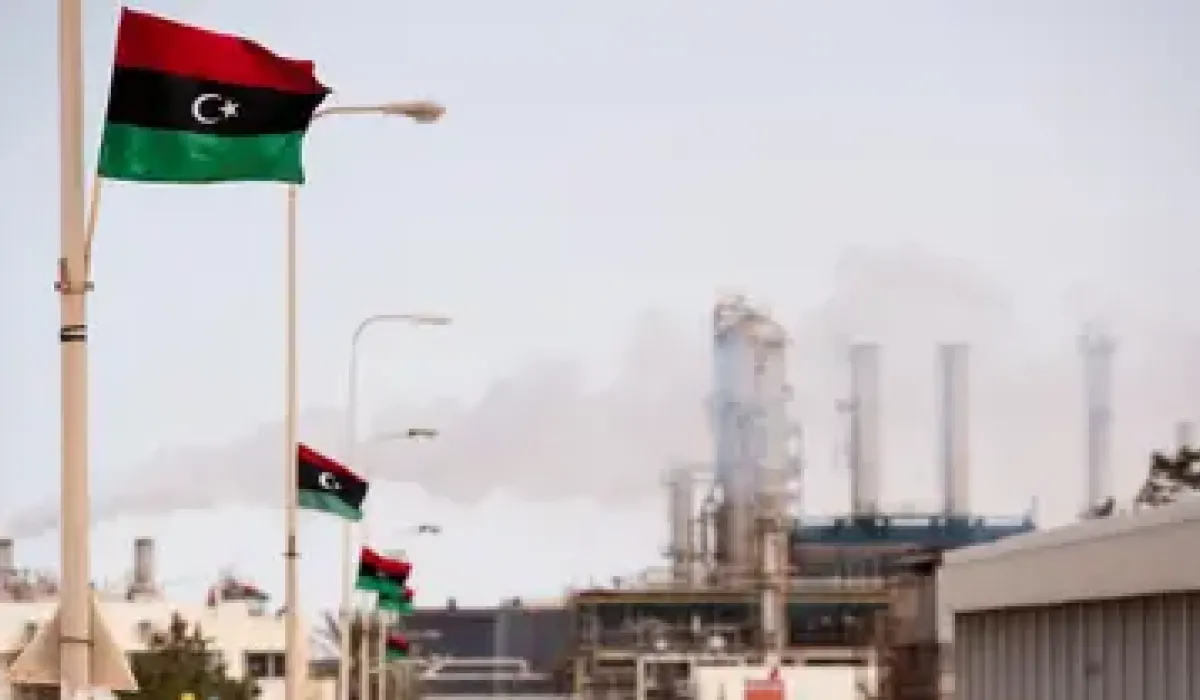
| News
Under the Patronage of the Human Dialogue Center, Experts Deliver Important Message on Libya’s Economic Situation, with Participation from Economic Salon Members
A group of economic and financial experts, including ten members from the Economic Salon organization out of seventeen, consisting of: Dr. Abubakr Abu Al-Aid Abulqasim, Mr. Hamuda Al-Aswad, Mr. Mrajea Gaith, Dr. Abdelghani Al-Fatissi, Dr. Fathi Al-Majbari, Eng. Mohamed Khaled Al-Ghweil, Dr. Mohamed Ben Yousef, Dr. Suleiman Al-Shahoumi, Mr. Mohamed Al-Shukri, and Dr. Ezzeddine Ashour, have issued an important message about the Libyan state’s financial challenges, under the sponsorship of the Human Dialogue Center.
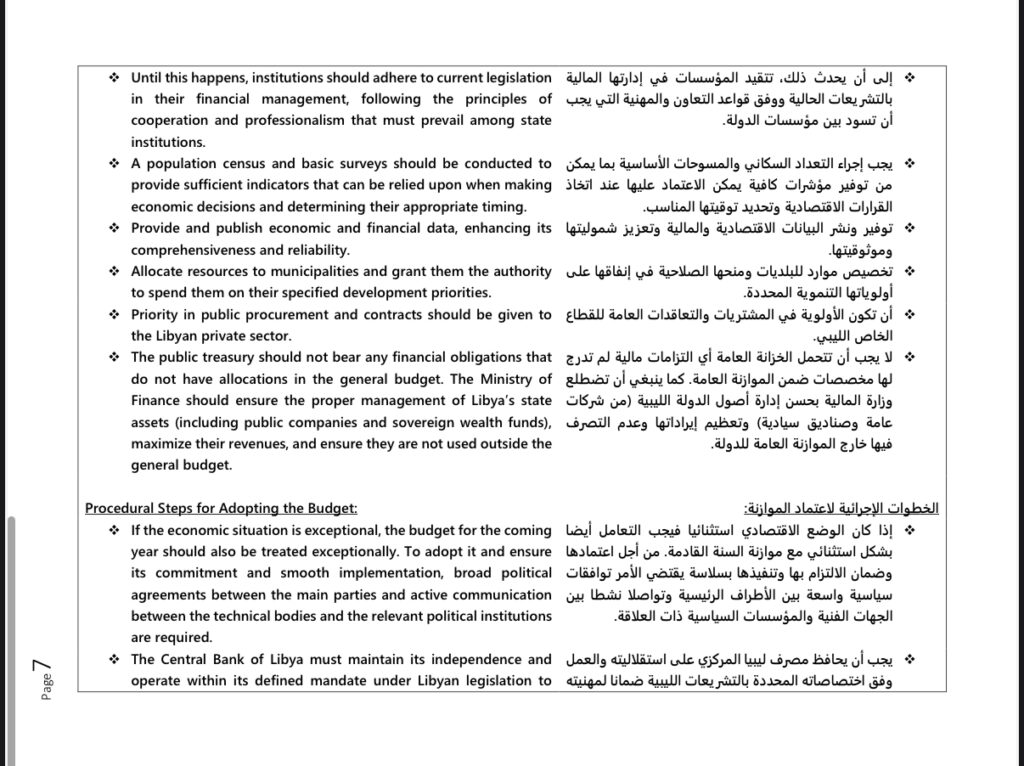
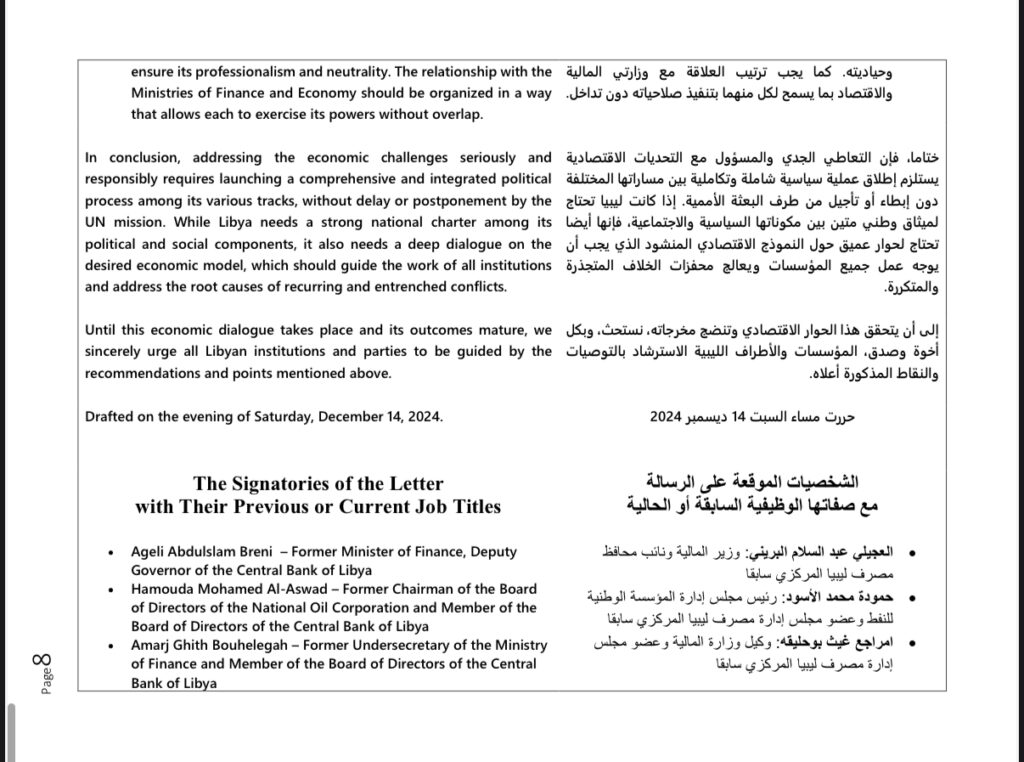
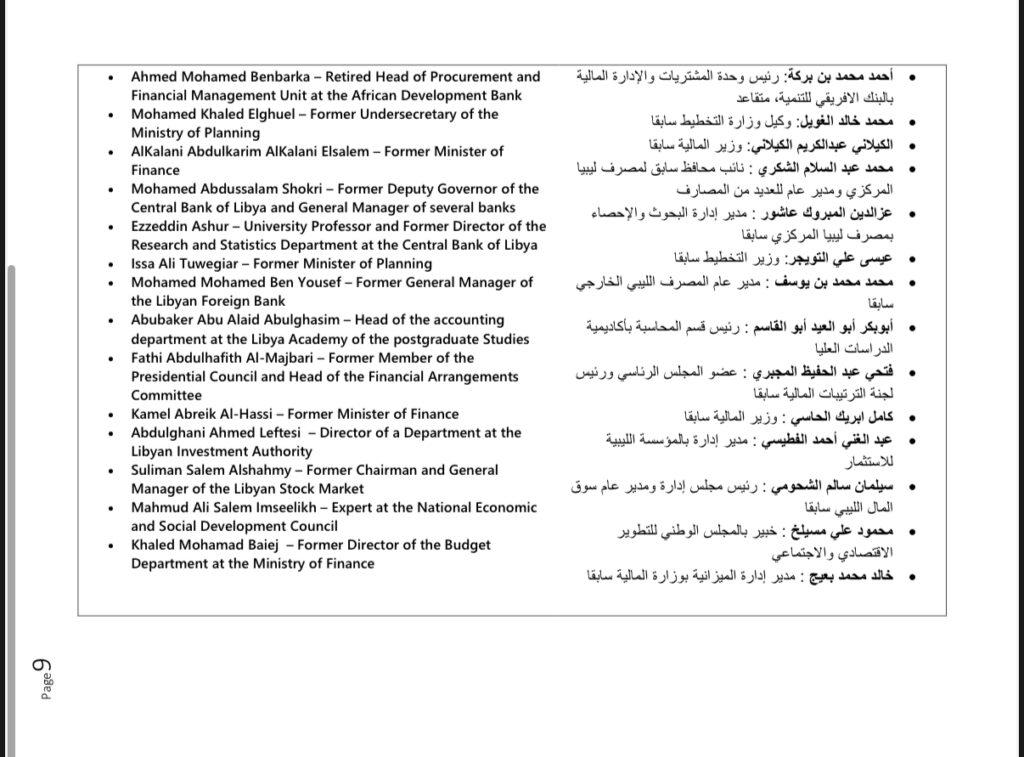
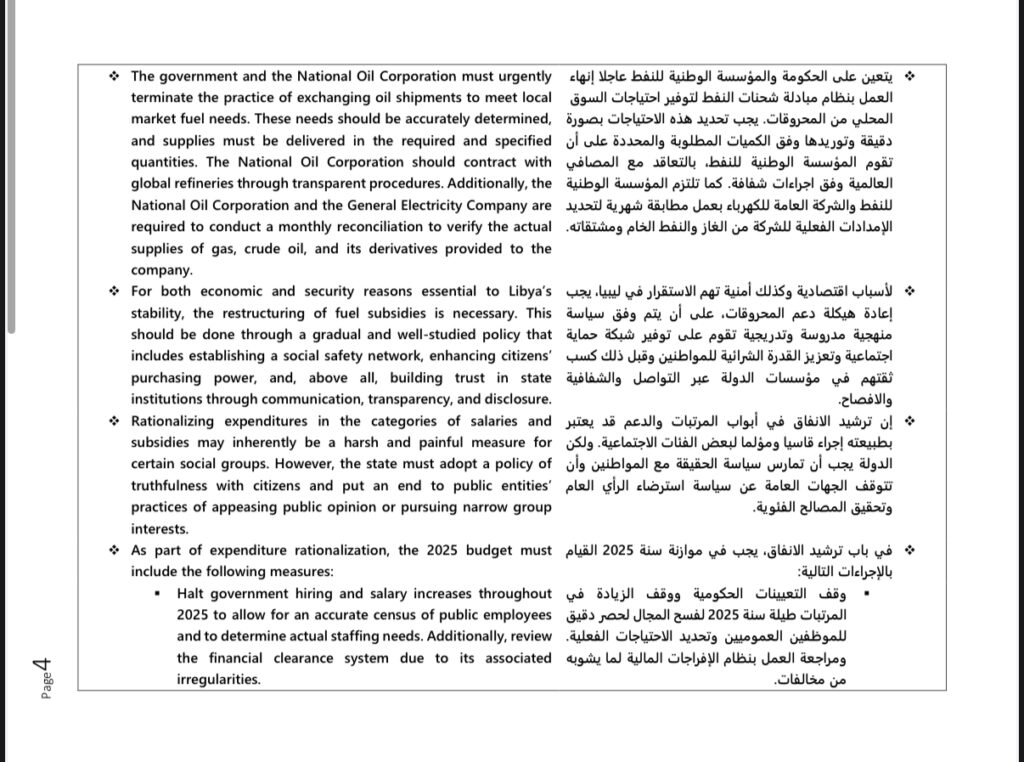
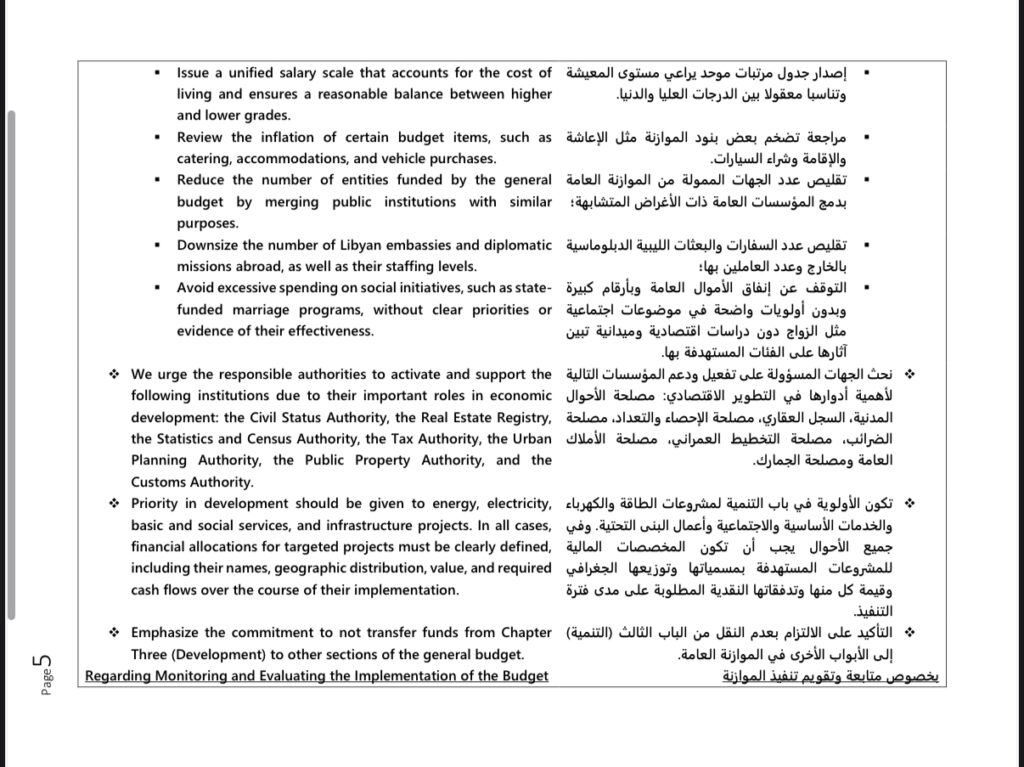
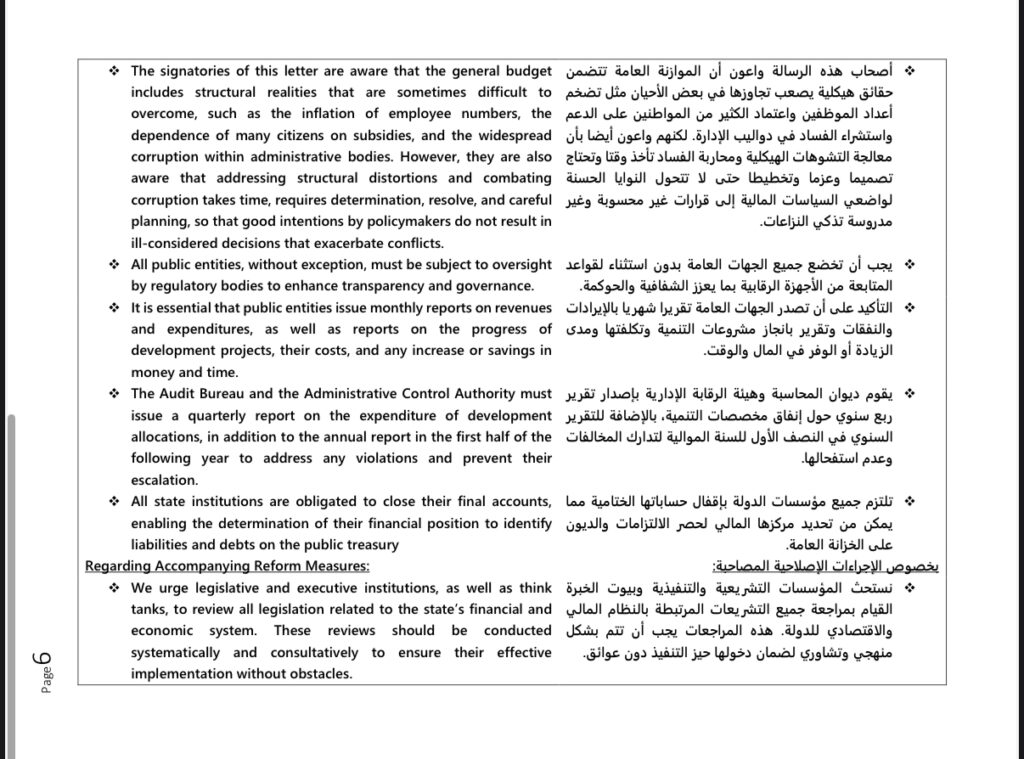
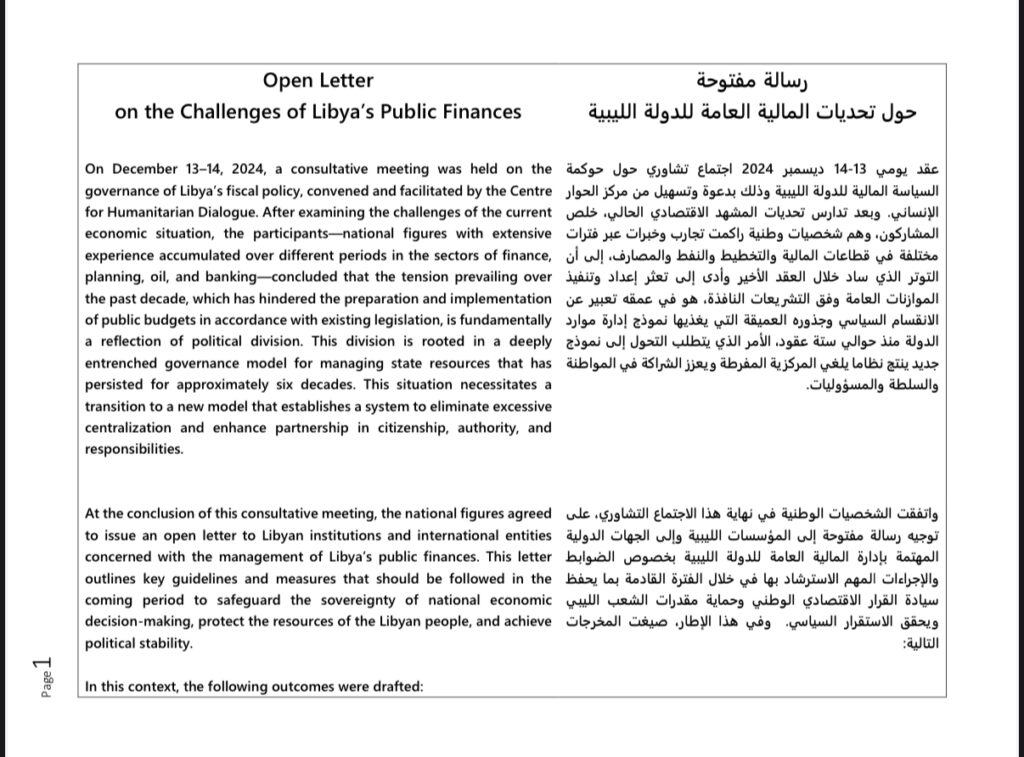
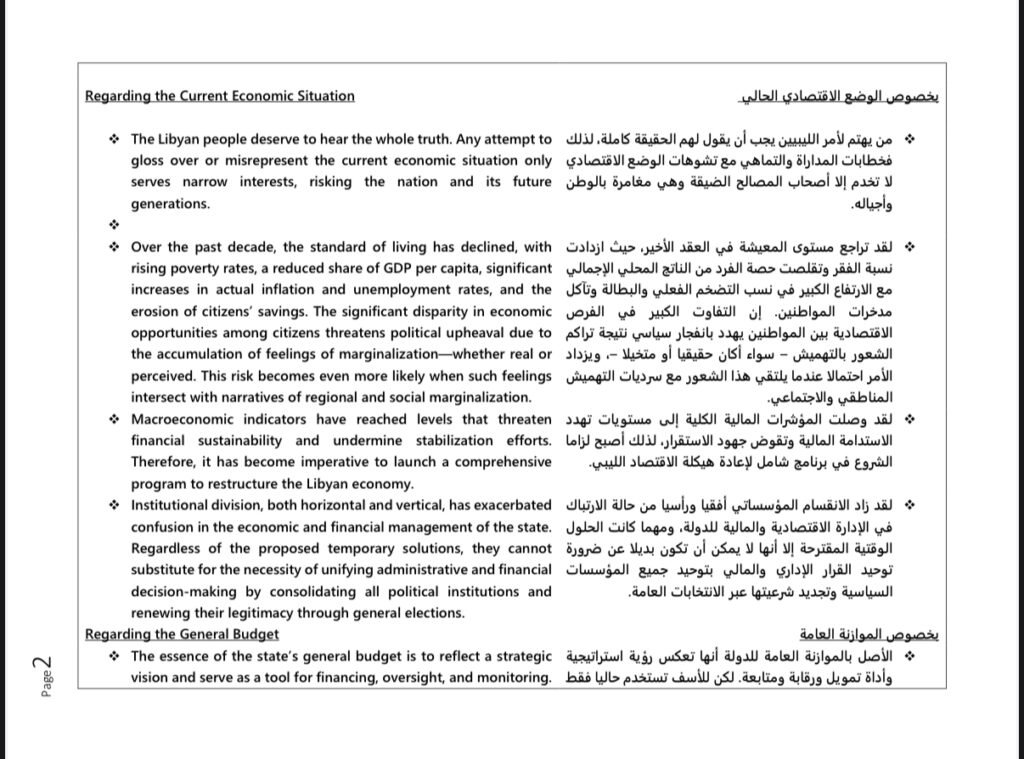

Regarding the current economic situation:
Anyone who cares about the Libyan people must speak the whole truth to them. Therefore, speeches of evasion and aligning with the distortions in the economic situation only serve narrow interests and are a gamble with the country and its future generations.
The standard of living has declined over the last decade, with poverty rates increasing and the per capita share of GDP shrinking, alongside a significant rise in actual inflation rates, unemployment, and the erosion of citizens’ savings. The large disparity in economic opportunities between citizens threatens political instability due to the accumulation of feelings of marginalization, whether real or imagined. This becomes even more likely when such feelings are combined with regional and social narratives of marginalization.
The overall financial indicators have reached levels that threaten financial sustainability and undermine efforts toward stability. Therefore, it is necessary to begin a comprehensive program for restructuring the Libyan economy.
Institutional divisions, both horizontal and vertical, have increased the confusion in managing the country’s economic and financial affairs. Regardless of the proposed temporary solutions, they cannot replace the need for unifying administrative and financial decisions by bringing all political institutions together and renewing their legitimacy through general elections.
Regarding the general budget:
The general budget of the state is supposed to reflect a strategic vision and be a tool for financing, oversight, and monitoring. Unfortunately, it is currently only used for current expenditures, which undermines its effectiveness and weakens its political and social credibility.
There is a need for a unified budget covering all government expenditure items across all regions of Libya. Despite all possible reservations, a unified budget remains better than any other financial arrangements.
The budget should be realistic, taking into account expected needs and revenues. It should also be based on macroeconomic and sectoral quantitative and qualitative indicators, ensuring the possibility of monitoring and evaluation within the framework of fiscal policy. The absence of economic indicators in general budgets reflects a regrettable approach to public funds with an exploitative mindset.
Regarding revenues:
All public entities tasked with collecting public revenues must do so. No entity should retain or deduct any part of these revenues for any reason or transfer them to other entities without legal authority.
All proceeds from the sale of oil, gas, and petroleum derivatives, as well as all other sovereign revenues, should be deposited, without exception, and on time into the general revenue account of the Ministry of Finance.
In a country that primarily relies on oil revenues, the National Oil Corporation must disclose detailed monthly data about its exports, the quantity of each type of crude oil, the selling price, the foreign partner’s share, and the share of the public treasury.
Regarding expenditure controls and standards:
The government and the National Oil Corporation must urgently end the practice of bartering oil shipments to meet local market fuel needs. These needs should be accurately determined and supplied according to the required quantities. The National Oil Corporation should contract with global refineries through transparent procedures. Both the National Oil Corporation and the General Electricity Company must conduct monthly reconciliations to determine the actual supply of gas, crude oil, and its derivatives to the company.
For economic and security reasons related to stability in Libya, fuel subsidies should be restructured in accordance with a studied and gradual policy that provides a social safety net and enhances citizens’ purchasing power, while first gaining their trust through communication, transparency, and disclosure.
Rationalizing expenditures on salaries and subsidies may be inherently harsh and painful for some social groups. However, the state must adopt a policy of truth with citizens and stop the practice of appeasing public opinion for the benefit of narrow interests.
In terms of rationalizing expenditures, the following measures should be implemented in the 2025 budget:
- Cease government appointments and salary increases throughout 2025 to allow for an accurate census of public employees and identification of actual needs.
- Issue a unified salary schedule that considers the cost of living and ensures a reasonable balance between higher and lower grades.
- Review the inflation of some budget items, such as subsistence, accommodation, and vehicle purchases.
- Reduce the number of government agencies funded by the general budget by merging public institutions with similar goals.
- Reduce the number of Libyan embassies and diplomatic missions abroad and their staff.
- Cease spending large sums of public money on social issues like marriage without proper economic and field studies showing the impact on the targeted groups.
We urge the relevant authorities to activate and support the following institutions for their vital roles in economic development: the Civil Registry Authority, the Real Estate Registry, the Statistics and Census Authority, the Tax Authority, the Urban Planning Authority, the Public Property Authority, and Customs.
Priority in development should be given to energy, electricity, basic social services, and infrastructure projects. In all cases, financial allocations for targeted projects should include their names, geographic distribution, value, and required cash flows over the execution period.
We emphasize adherence to the rule of not transferring funds from the third section (development) to other sections in the general budget.
Regarding monitoring and evaluating the budget implementation:
The signatories of this message are aware that the general budget includes structural facts that are sometimes difficult to overcome, such as the inflation of public employee numbers, the reliance of many citizens on subsidies, and the widespread corruption in administration. However, they are also aware that addressing these structural distortions and combating corruption takes time and requires determination, planning, and design to avoid turning good intentions into ill-conceived and poorly studied decisions that fuel conflicts.
All public entities should be subject to monitoring by oversight bodies, which enhances transparency and governance.
We emphasize that all public entities issue monthly reports on revenues and expenses, as well as reports on the progress of development projects, their costs, and any increases or savings in funds and time.
The Audit Bureau and the Administrative Control Authority should issue quarterly reports on the expenditure of development allocations, in addition to the annual report in the first half of the following year to address violations before they worsen.
All state institutions must close their final accounts, which allows for determining their financial position and identifying obligations and debts to the public treasury.
Regarding accompanying reform measures:
We urge the legislative and executive institutions and expert houses to review all legislation related to the state’s financial and economic system. These reviews must be conducted in a systematic and consultative manner to ensure their smooth implementation.
Until that happens, institutions must adhere to current legislation in their financial management according to principles of cooperation and professionalism that should prevail between state institutions.
A population census and basic surveys should be conducted to provide sufficient indicators to guide economic decisions and their appropriate timing.
Economic and financial data should be provided and published, enhancing their inclusiveness and reliability.
Resources should be allocated to municipalities, granting them the authority to spend them on their defined development priorities.
Priority in public procurement and contracts should be given to the Libyan private sector.
The public treasury should not bear any financial obligations that are not included in the general budget. The Ministry of Finance should efficiently manage the state’s assets from public companies and sovereign funds, maximizing their revenues and ensuring they are not diverted outside the general budget.
Procedural steps for adopting the budget:
If the economic situation is exceptional, the upcoming year’s budget should also be dealt with exceptionally to ensure its adoption, compliance, and smooth implementation. This requires wide political agreements among the key parties and active communication between technical bodies and the relevant political institutions.
The Central Bank of Libya must maintain its independence and work within its legally defined responsibilities to ensure its professionalism and neutrality. The relationship with the Ministries of Finance and Economy should be arranged so that each can implement its powers without overlap.
In conclusion, dealing with economic challenges seriously and responsibly requires launching a comprehensive political process that integrates its various paths without delay or postponement from the UN mission. If Libya needs a solid national charter between its political and social components, it also requires a deep dialogue about the desired economic model that should guide the work of all institutions and address the root causes of repeated conflicts.


